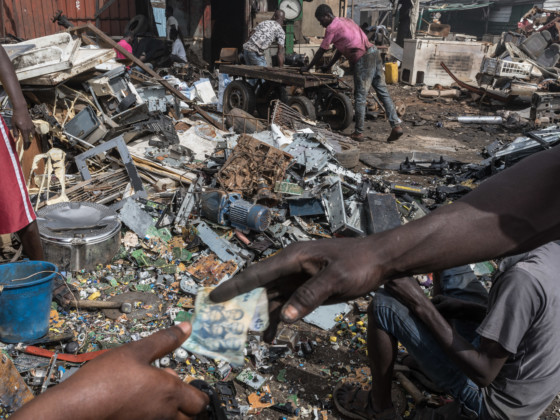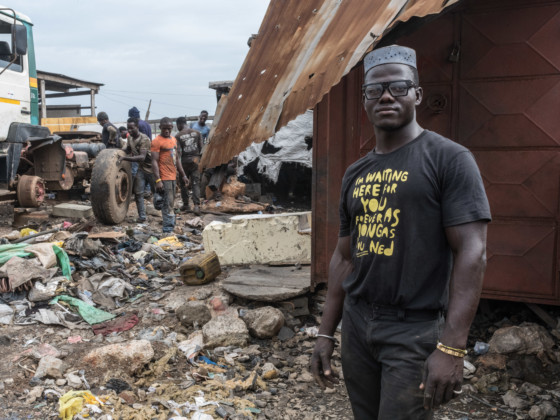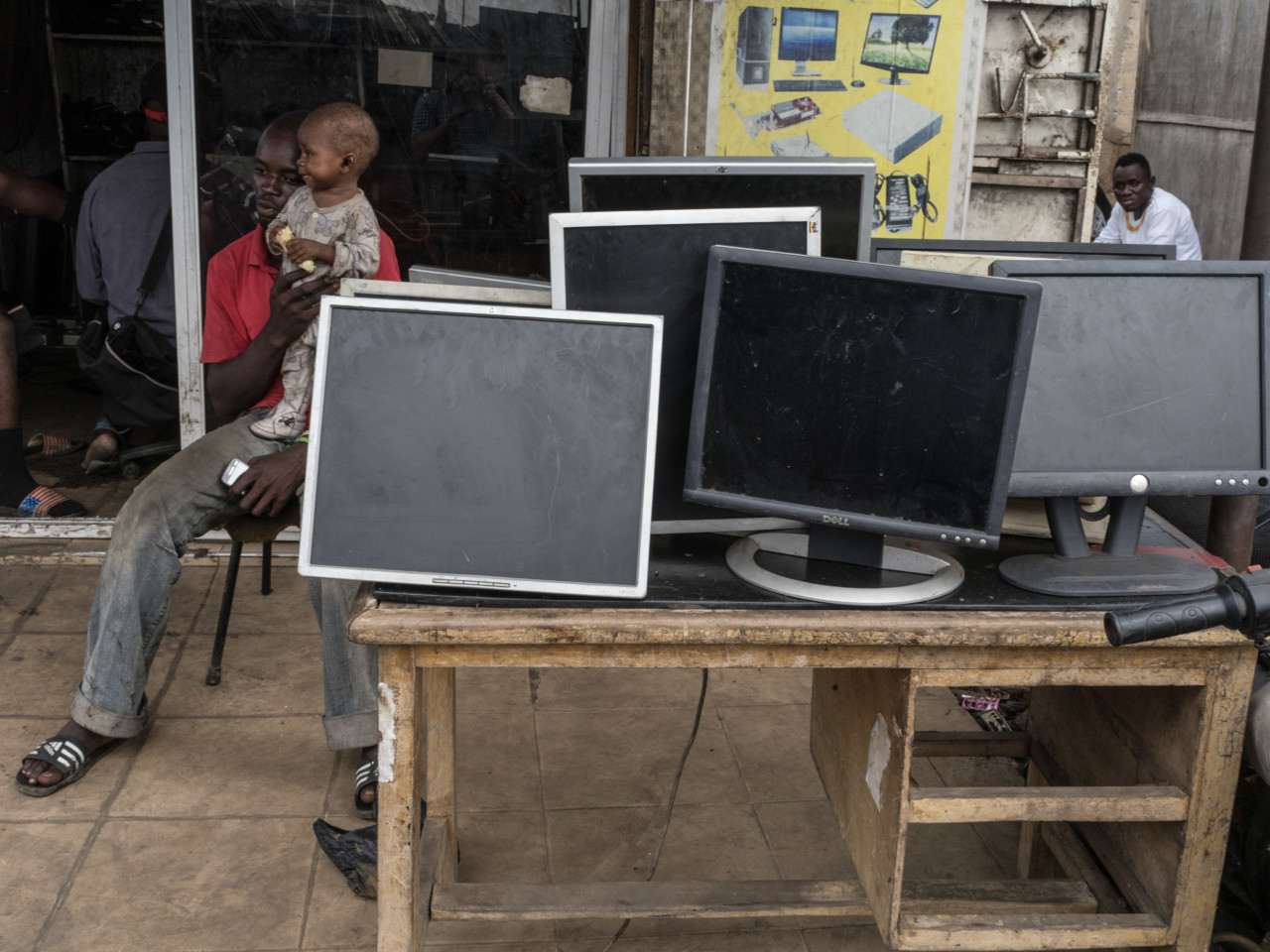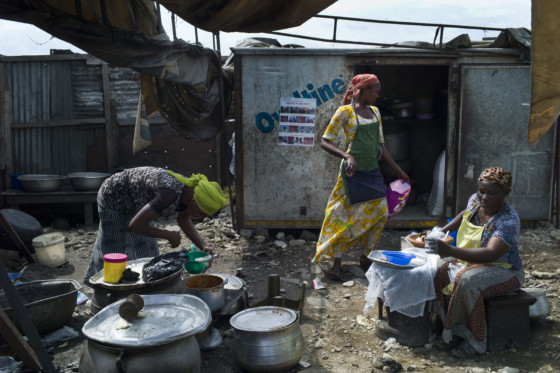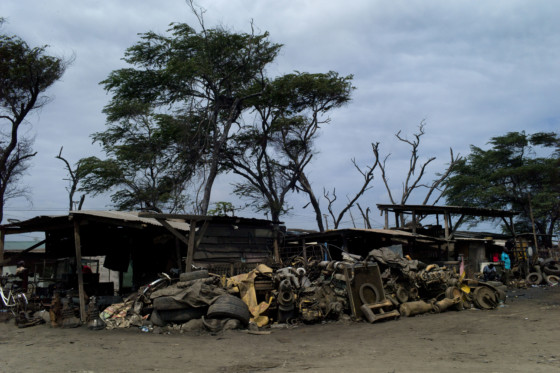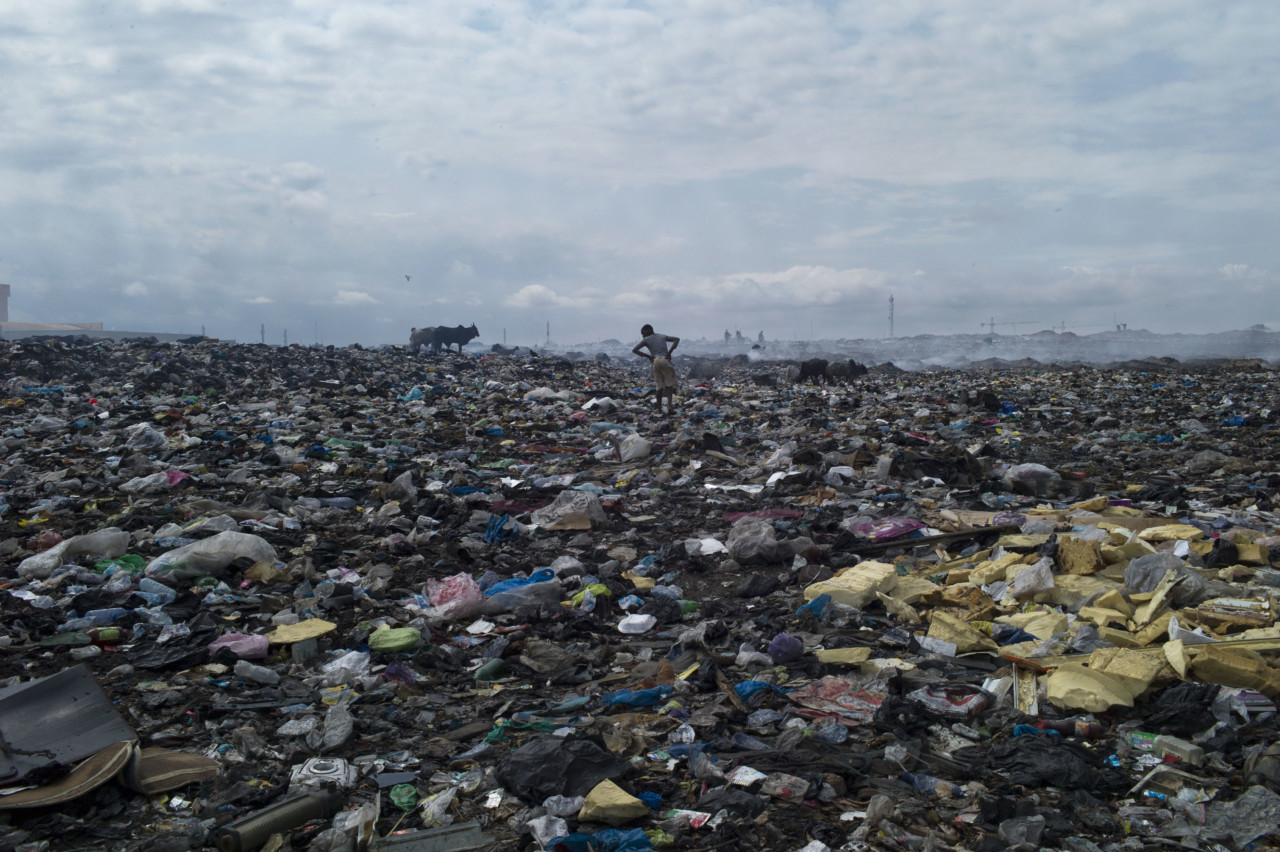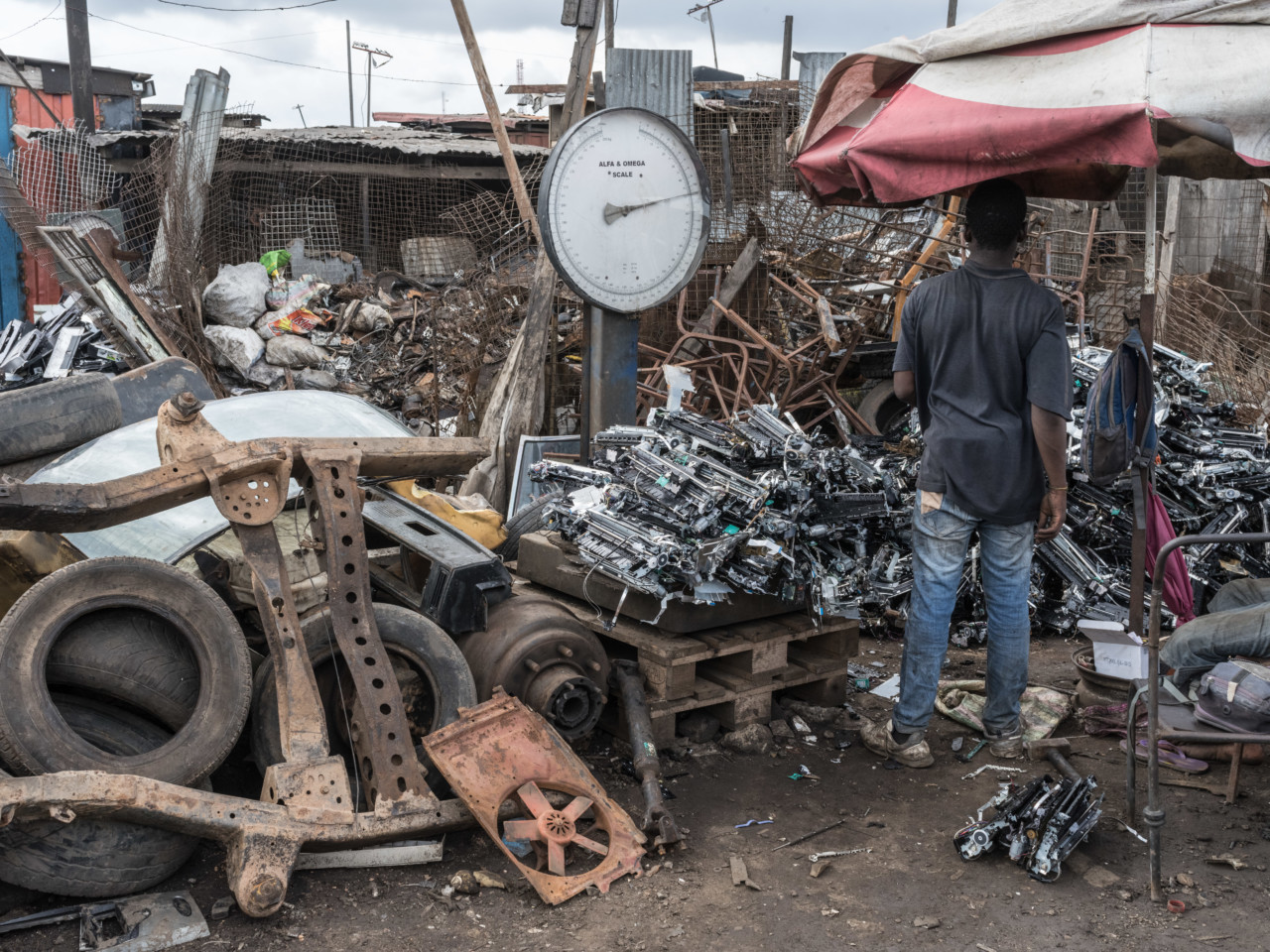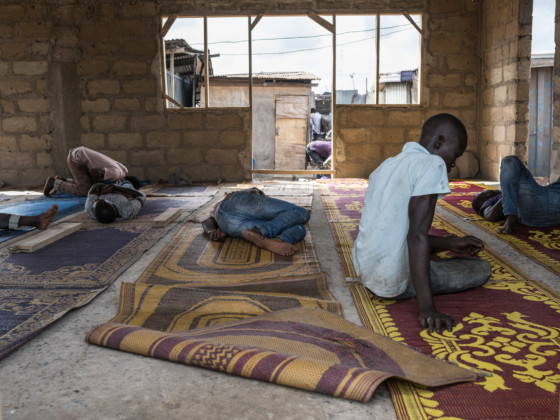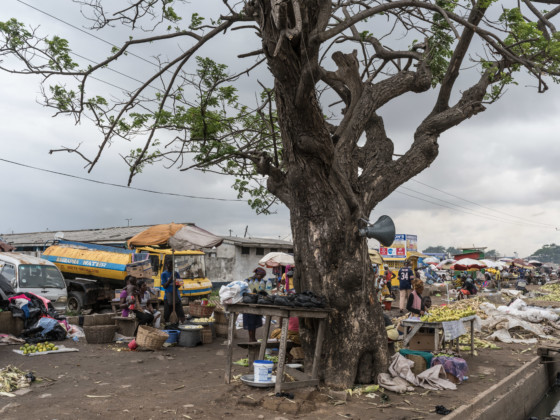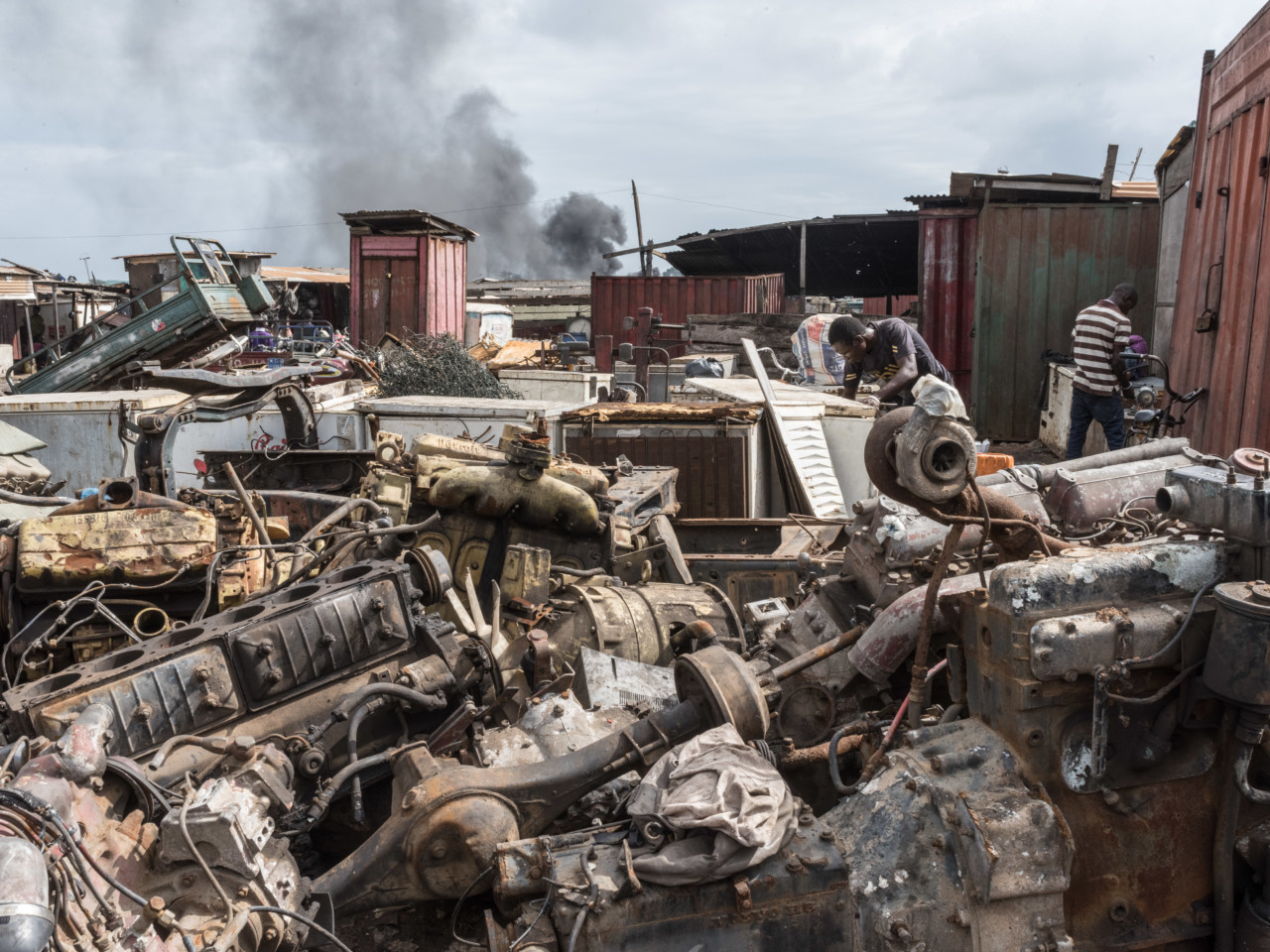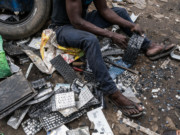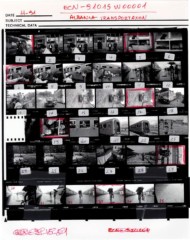Ghana’s Tech Dump: The Untold Story
How hope and aspiration are rising up amongst the digital debris of the infamous Agbogbloshie technology waste dump
Magnum Photographers
It is not surprising that it is difficult to gain access to the Agbogbloshie ‘tech dump’ just on the periphery of Accra, Ghana. Not only has the site, where tons of electronic waste, including computers and other consumer goods from all over the world ends up, been accused of illegal and unsafe practices employed to burn waste in order to separate out valuable elements like copper wire and silver from digital components, but years of negative press has portrayed it as somewhat of a hell hole. Photographs of burning rubble, sick cattle and unwell workers overshadow – or omit completely – a story of education around recycling and problem solving to improve the situation.
Amongst the digital debris, photographed by Carl de Keyzer and Nikos Economopoulos, there is a more nuanced story to be told. A whole economy, a small town almost, has sprung up around it; there are food vendors, a mosque and a fashion store, for example. Many people argue that the dump provides necessary income for people who would otherwise have no means of earning money and say that, instead of being shut down, Agbogbloshie should become a prototype for responsible recycling. To this end, a number of NGOs and government offices have joined forces to open a training center at the dump, which aims to educate workers about environmental hazards. In addition, safer and more environmentally friendly equipment has been donated to enable workers to break down e-waste for recycling purposes without damaging their health.
These organizations include Global Alliance for Health and Pollution GAHP; Green Advocacy Ghana, an environmental NGO based in Ghana, West Africa that aims at upholding and enhancing the sustainability and integrity of Ghana’s environment, and Pure Earth.
In a statement given to Magnum by Green Advocacy Ghana (GreenAd), Executive Director Yaw Osei said, “Agbogbloshie earned its unenviable reputation largely due to the crude method of electronic scrap recycling, particularly the burning of cables to recover precious metals.” GreenAd, in partnership with Pure Earth, has installed equipment for the sound recovery of valuable metals such as copper and aluminum from cables, in an effort to eliminate the burning-related pollution of the southern part of Accra.
According to Osei, “The Agbogbloshie site is now steadily seeing an increase in the quantity and quality of recycled cables, thus reducing the carbon footprint from burning and the adverse pollution effect on the scrap workers, neighbouring communities and patrons of the Agbogbloshie food market. This is expected to lead eventually to the elimination of heavy metal (including Lead) releases and dioxins emissions.”
"It is, after all, their livelihood that is being scrutinized, and they do this dangerous work because they lack job options"
- Pure Earth
The idea that Agbogbloshie is wasteland of pollution – the story often told in the press, illustrated the smoldering piles of out-of-date technological products and animals and people surrounded by dirt – is sensationalist and reductive, according to the organizations working there. A spokesperson for Pure Earth’s explains: “Our team on the ground in Agbogbloshie tells us that the recyclers are weary of all the attention they are receiving. It is, after all, their livelihood that is being scrutinized, and they do this dangerous work because they lack job options. The problem of e-waste is a complex one that cannot be solved overnight.”
By accepting that banning dangerous and environmentally unfriendly practices would only drive them underground, making intervention harder, organizations like Pure Earth are able to make small steps to address the biggest threats to human health by offering alternative methods and education. Their solution is an e-waste recycling center, which was set up in partnership with local NGO Green Advocacy Ghana and the Greater Accra Scrap Dealers Association. Here they are showing the recyclers of Agbogbloshie that processing e-waste can be done in a way that is safer and ultimately, more profitable. A detailed account of Pure Earth’s education project can be found here.



